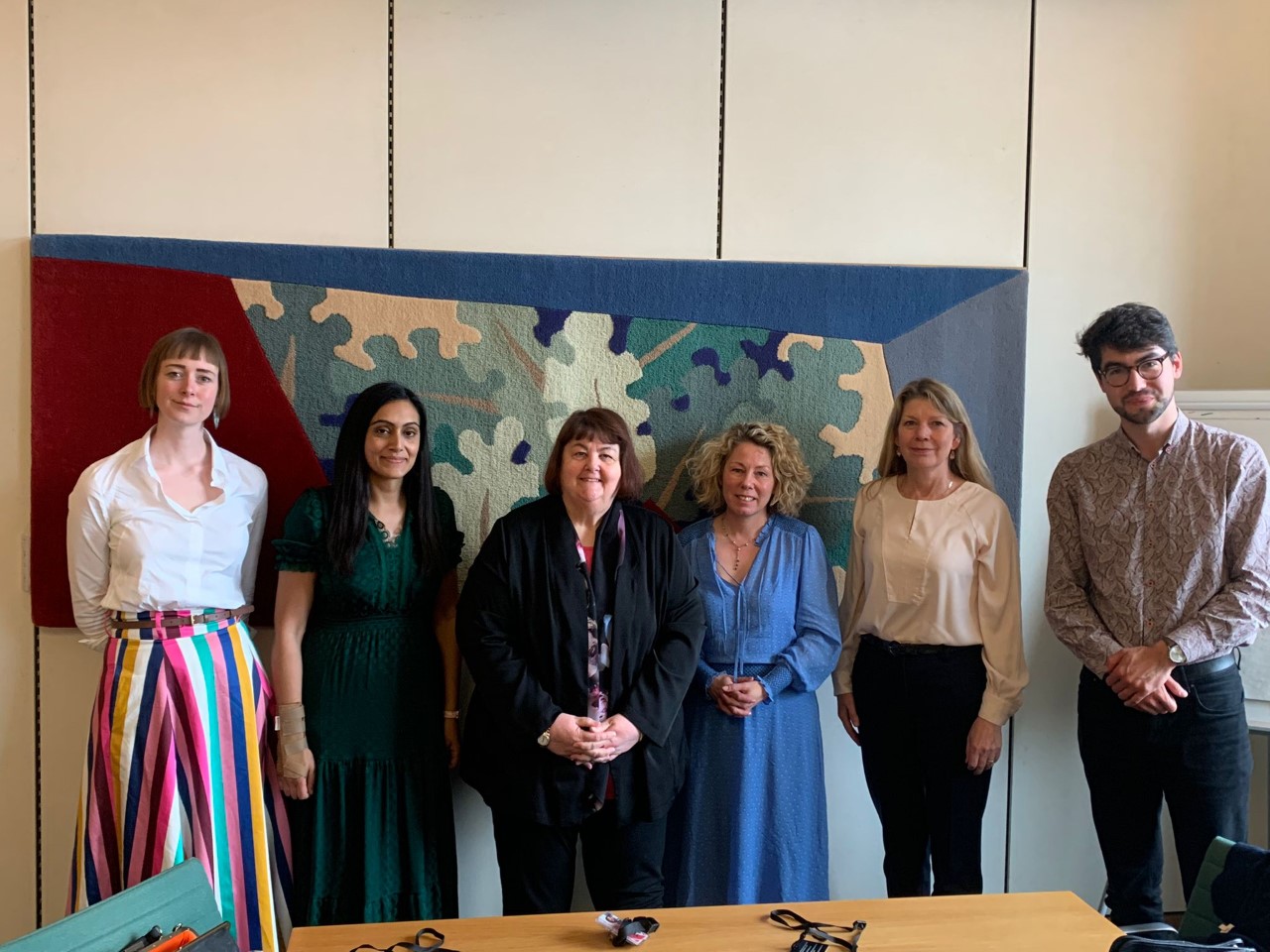Fragmented and Frustrating: Rethinking Post-rape HIV Policies by Dr George Severs
In May 2022, a roundtable convened to consider the obstacles to HIV-related care following instances of rape and sexual assault. Organised by SHaME and hosted by the All Party Parliamentary Group on HIV and AIDS, this event aimed to think about the ways in which policy and clinical practice might be reformulated in the future to better serve people needing to access HIV-services.
The roundtable brought together clinicians from London and Manchester NHS foundation trusts and sexual assault referral centres (SARCs), an executive from the LGBT anti-abuse charity Galop, parliamentarians and academics. The discussion was rich and wide ranging, and will inform a more detailed policy paper to be launched in Parliament later this year. The challenges which were identified are worth reflecting on, not least because they remind us that the history of HIV and sexual health care is not a linear narrative of ceaseless progress. Instead, recent changes to the healthcare system in Britain have proved damaging for survivors of sexual assault, especially where access to HIV care and advice is concerned.

The first issue which our experts raised was that of under-reporting. For one leading SARC doctor, ‘the main thing is that most victims will never disclose to anybody anyway’. Within this group of ‘hidden victims’ are individuals who are disproportionately at risk of assault and less likely or able to disclose, such as sex workers, the homeless and people with learning disabilities. Acknowledging the reality of mass under-reporting makes clear a major issue for HIV and sexual health professionals: if survivors aren’t able to disclose, are they able to access HIV prevention services?
Access to these services requires that survivors recognise themselves first as victims and second as being in need of HIV advice. As one clinician said,
they’ve got to have that thought process that they might be at risk, and then they’ve got to know where they could get help, and in a timely manner, and then there’s also they have to feel that that help is available to them because for some people they might know it exists, they might know that the police would take somebody to a SARC but they might not think that the police would take them to a SARC, or they’re not worthy…
This idea of being ‘worthy’ of care or advice is vitally important. In cases where survivors do know about aftercare and are taken to SARCs, feeling ‘out of place’ or ‘othered’ can still prove to be a barrier to care. This is not a new problem, as a fragmentary piece of evidence from the archives of the London Lesbian and Gay Switchboard makes clear. In March 1992, a man called Switchboard after he had been sexually assaulted by his taxi driver in London. The notes on his case reveal that after the ‘police found him’ they ‘took him to St Mary’s casualty’ for post-rape health checks. Notably, they do not seem to have taken him to a police surgeon for forensic examination (male rape was not yet a legally recognised crime) and did not take him to a specialist service. Perhaps because in this more general medical environment he felt out of place, the Switchboard call handler reported that the caller ‘was too embarrassed to hang around [and] took a cab back home’. Switchboard advised him to visit his own doctor and to reach out to groups such as Galop, but the notes reveal one of the problems which our roundtable of experts noted: a lack of knowledge about relevant services (in this case on the part of both the survivor and the police).
Clearly, there are longstanding barriers preventing survivors from accessing sexual health services following acts of sexual violence. These include a lack of personal and professional knowledge of specialist services and internalised misogyny or homophobia suggesting to survivors that they’re not worthy of aftercare.
There are also structural barriers exacerbating the provision of post-rape sexual health care. Two major issues are at play here. First is the fact that sexual health services and HIV services are commissioned separately. Second is the lack of overall responsibility for sexual violence services.
Our experts were frustrated by the lack of overall responsibility being taken for sexual violence. They pointed to the existence of the Domestic Abuse Commissioner and argued that a similar role for sexual violence services might be helpful. Without an overall commissioner, sexual violence professionals are often left pinballing between national and local government departments as each claims an interest but suggests that they are not the appropriate body to provide funding or support. A centralised commissioning figure could, perhaps, also bring about more streamlined access to resources.
Fragmentation was a recurring source of professional frustration, especially where commissioning of services was concerned. The split between HIV and sexual health commissioning occasioned by the Health and Social Care Act 2012, commonly referred to as the Lansbury Reforms, loomed large in our discussion. As a result of this piece of legislation HIV care is commissioned nationally by NHS England whilst sexual health services are the responsibility of local authority Public Health Commissioners. This has led to a dysfunctional system in which sexual health professionals are forced to fragment their services and add to their administrative workloads where HIV is concerned.
Moreover, local sexual health professionals, many of whom will be providing services relevant to HIV and survivors of sexual violence, end up having to compete for the same limited resources. This enforced competition can hinder professionals’ ability to collaborate with colleagues across the many medical, psychiatric and social services to which survivors may need access. In the words of one Manchester-based sexual health clinician: ‘the problem is the way things are commissioned is it’s commissioned competitively, so you’re fighting over the same pot of money, and that doesn’t encourage joint working or sharing of ideas’.
Unlike the more complex problem of personal awareness of specialist services and feeling able to access them, this is an issue which could be resolved through policy changes. Policymakers and ministers should listen to the frustration of overworked and underfunded sexual health professionals who have identified the gap in commissioning as an obstacle to conducting their work effectively and in a patient-centred way. The broader policy paper which will emerge from this project will identify further issues and recommendations, but it is clear that reform of the Health and Social Care Act 2012 could make meaningful changes in the short term.
 Dr George Severs is a postdoctoral research fellow on the SHaME project. He is an historian of HIV/AIDS, activism, religion and sexuality in modern Britain. George’s doctoral research examined the history of HIV/AIDS activism in England between 1982 and 1997, covering radical direct-action groups such as ACT UP (the AIDS Coalition to Unleash Power), as well as less conventionally accepted modes of activism which pushed for changes in workplaces, religious settings, universities and amongst medical practitioners. George’s postdoctoral research concerns the impact of the HIV/AIDS epidemic on medics and sexual health advisors who dealt with survivors of sexual harm and violence in the UK. George is Secretary of the Oral History Society’s LGBTQ special interest group and Public History Editor of Oral History.
Dr George Severs is a postdoctoral research fellow on the SHaME project. He is an historian of HIV/AIDS, activism, religion and sexuality in modern Britain. George’s doctoral research examined the history of HIV/AIDS activism in England between 1982 and 1997, covering radical direct-action groups such as ACT UP (the AIDS Coalition to Unleash Power), as well as less conventionally accepted modes of activism which pushed for changes in workplaces, religious settings, universities and amongst medical practitioners. George’s postdoctoral research concerns the impact of the HIV/AIDS epidemic on medics and sexual health advisors who dealt with survivors of sexual harm and violence in the UK. George is Secretary of the Oral History Society’s LGBTQ special interest group and Public History Editor of Oral History.